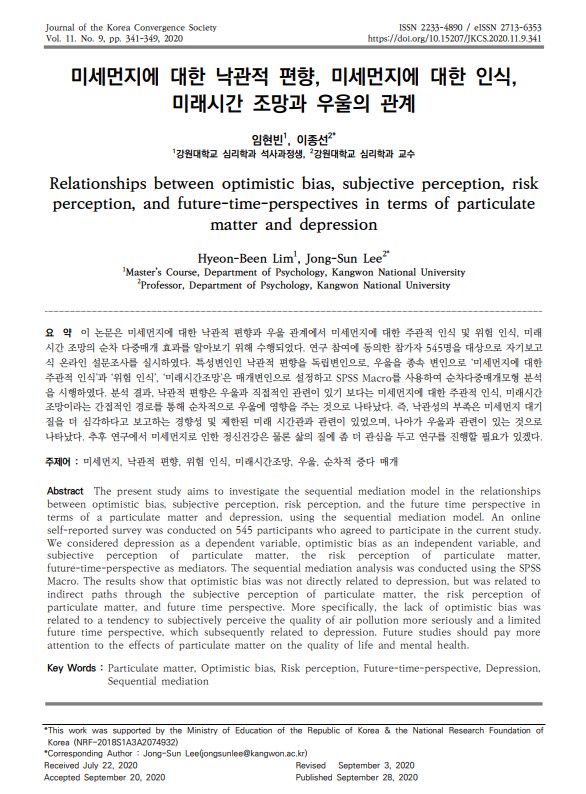미세먼지에 대한 낙관적 편향, 미세먼지에 대한 인식, 미래시간 조망과 우울의 관계
페이지 정보
작성자 최고관리자 댓글 0건 조회 253회 작성일 23-01-13 01:51본문
The present study aims to investigate the sequential mediation model in the relationships between optimistic bias, subjective perception, risk perception, and the future time perspective in terms of a particulate matter and depression, using the sequential mediation model. An online self-reported survey was conducted on 545 participants who agreed to participate in the current study. We considered depression as a dependent variable, optimistic bias as an independent variable, and subjective perception of particulate matter, the risk perception of particulate matter, future-time-perspective as mediators. The sequential mediation analysis was conducted using the SPSS Macro. The results show that optimistic bias was not directly related to depression, but was related to indirect paths through the subjective perception of particulate matter, the risk perception of particulate matter, and future time perspective. More specifically, the lack of optimistic bias was related to a tendency to subjectively perceive the quality of air pollution more seriously and a limited future time perspective, which subsequently related to depression. Future studies should pay more attention to the effects of particulate matter on the quality of life and mental health.
Citation
임현빈, 이종선. (2020). 미세먼지에 대한 낙관적 편향, 미세먼지에 대한 인식, 미래시간 조망과 우울의 관계. 한국융합학회논문지, 11(9), 341-349.
댓글목록
등록된 댓글이 없습니다.



